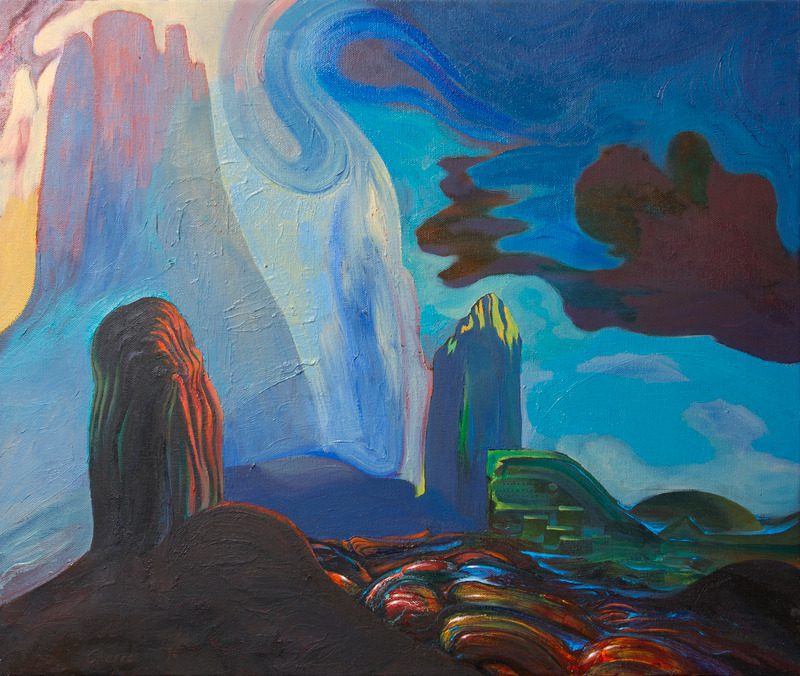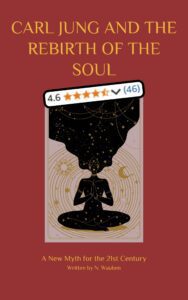Henry David Thoreau was an incredibly interesting writer. In his book Walden he wrote about the experiences he acquired while living on his own in the woods for over two years with limited means. In his book Walden Henry David Thoreau shared his philosophical insights and why he disliked society and the materialism that has infected society throughout. With his focus on simplicity, Henry David Thoreau relates in many ways to Stoic philosophers. Walden is not the easiest book to read. Unique philosophical insights are followed by instructions on how to grow beans, which is also why I like to call Henry David Thoreau the bean stoic.
These passages on beans might not be the most interesting to read and can make some parts of the book a bit strenuous. It is, however, still more than worth it to read the entire book. I believe that this is the case because Henry David Thoreau’s philosophy is more relevant than ever. While our societies continue to develop, materialism continues to spread as well. Walden teaches us why we should not let ourselves be corrupted by materialism and society, and how we can distance ourselves from the negative influences of both, without moving to a forest and growing beans.
In this article I will list the 4 most important philosophical insights presented by Henry David Thoreau in his book Walden. These insights, which Henry David Thoreau acquired while living in solitude in the woods, can help us in improving our lives as well.

Table of Contents
1. Less is More
Henry David Thoreau preferred to live with limited means. He believed that the most important benefactors of society lived with limited means as well, Greek Philosophers, for example. Henry David Thoreau believed that less possessions would result in more peace of mind: “when the furniture of my mind was all undusted still, and I threw them out the window in disgust. How, then, could I have a furnished house?” (p.32)
Perhaps more importantly, Henry David Thoreau believed that most members of modern society are slaves to the fashions promoted by the rich. He believed that the luxurious create a norm for living that the rest of society eagerly tries to copy at the cost of ‘accumulating dust’ in their minds: “It is the luxurious and dissipated who set the fashions which the herd so diligently follow.” (p.32)
In this sense, ‘the herd’ are slaves to the objects that they aim to acquire, be it fame, fortune or power. Thoreau argued that, in the past, men used objects to make his or her life in nature easier. In our modern age, however, according to Thoreau, men have become slaves to their possessions: “But Lo! Men have become the tools of their tools. The man who independently plucked his fruits when he was hungry is become a farmer; and he who stood under a tree for shelter, a housekeeper. We now no longer camp as for a night, but have settled down on earth and forgotten heaven.” (p. 33)
Moreover, men do not even want to accumulate these possessions because they really want them or because they will make him or her happy. Instead, Thoreau believed that men want to acquire them in order to follow the fashions set by the luxurious. Most will not succeed in these endeavours and are thereby doomed to unhappiness. As such, according to Thoreau, we should, whenever we want something, carefully consider why we want it. Do we want it because we believe it will truly make us happy, or do we want it just so that we can follow the fashions set by the luxurious?
2. Carve your Own Atmosphere
According to Thoreau, every individual has the means to improve his or her own life and escape from this trap set by society without having to acquire any additional riches. All that is needed is a focus on the activities that one considers to be important: “I know of no more encouraging fact than the unquestionable ability of man to elevate his life by a conscious endeavour.” (p.80)
The philosophy of Henry David Thoreau in his book Walden can be related to the stoic philosophers in the sense that he believed that this must be done from within the mind, combined with his beforementioned focus on simplicity: “It is something to be able to paint a particular picture, or to carve a statue, and so to make a few objects beautiful; but it is far more glorious to carve and paint the very atmosphere and medium through which we look, which morally we can do.” (p.80)
For Thoreau, this elevation was achieved through simplicity. He argued that we make our lives to complicated and should try to make them simpler: “Our life is frittered away by detail. An honest man has hardly need to count more than his then fingers, or in extreme cases he may add his ten toes, and lump the rest. Simplicity, simplicity, simplicity! (p.81)
This can be rather complicated, because society will tell you to, instead of simplifying your life, consume, consume, consume! As Leo Tolstoy also indicated in his book Resurrection, Society rewards those that conform to materialism and greed, and will frown upon those that try to distance themselves from these vices.
However, according to Thoreau, as he learned from his own experiences, if one continues his or her own pursuits, regardless of the priorities set by society, good things will ensue: “I learned this, at least, by my experiment: that if one advances confidently in the direction of his dreams, and endeavours to live the life which he has imagined, he will meet with a success unexpected in common hours.” (p.286)

3. Explore
Henry David Thoreau believed that one of the best ways to improve one’s life, besides simplicity and a deep focus on one’s own priorities, is through adventure. Thoreau believed that most men spend their lives like slaves, slaves to the useless pursuits of society: “Through want of enterprise and faith men are where they are, buying and selling, and spending their lives like serfs.” (p.185)
Instead, Henry David Thoreau argued that men should pursue adventures, which is something which he personally did during the time that he wrote Walden:
“Men come tamely home at night only from the next field or street, where their household echoes haunt, and their life pines because it breathes its own breath over again; their shadows morning and evening reach farther than their daily steps. We should come home from far, from adventures, and perils, and discoveries every day, with new experience and character.” (p.185)
Thoreau believed that one could achieve this by treating oneself with ‘ever increasing respect’ and practicing a certain kind of moderation:
“A voice said to him – why do you stay here and live this mean moiling life, when a glorious existence is possible for you? Those same stars twinkle over other fields than these. But how to come out of this condition and actually migrate thither? All that he could think of was to practice some new austerity, to let his mind descend into his body and redeem it, and treat himself with ever-increasing respect.” (p.198)
4. Live your Life Fully
Moreover, Thoreau believed that one should live one’s life fully regardless of the condition one is in. In Walden, Henry David Thoreau, argued that one should not wait until one is rich, or happy or a certain age, but simply live. Everyone will be able to discover something that is wrong with his or her life, this should, however, not prevent one from living: “However mean your life is, meet it and live it; do not shun it and call it hard names. It is not as bad as you are. It looks poorest when you are richest. The fault-finder will find faults even in paradise. Love your life, as poor as it is. (p.290)
Thoreau argued that the poor can be as happy as the rich, because the ingredients for true happiness are equally present: “The setting sun is reflected from the windows of the almshouse as brightly as from the rich man’s abode; the snow melts before its door as early in the spring. I do not see but a quiet mind may live as contentedly there, and have as cheering thoughts, as in a palace.” (p.290)
Not being rich can even be an advantage, according to Thoreau, because one can focus on the things that are truly important. Moreover, additional wealth, will only be able to provide one with objects that are not essential:
“If you cannot buy books and newspapers, for instance, you are but confined to the most significant and vital experiences; you are compelled to deal with the material which yields the most sugar and the most starch. It is life near to the bone where it is sweetest. You are defended from being a trifler […] Superfluous wealth can buy superfluities only. Money is not required to buy one necessary of the soul.” (p.291)
Conclusion
Living in accordance with the insights presented by Henry David Thoreau is easier said than done. I believe however, that the most important lesson that we can take away from reading Thoreau is that we should focus on the true priorities in life: “Do not trouble yourself much to get new things, whether clothes or friends. Turn the old; return to them. Things do not change: we change. Sell your clothes and keep your thoughts. God will see that you do not want society. If I were confined to a corner of a garret all my days, like a spider, the world would be just as large to me while I had my thoughts about me.” (p.290)
If you want something, consider why you want it. Do you merely want to ‘follow the fashion set by the luxurious?’ At the same time, we should not always conform to society, according to Thoreau, in particular by simplifying our lives and thereby ending our endless circle of meaningless consumption. True, happiness, according to Thoreau is, instead, found through exploration and taking one’s life as it is. This can be done regardless of how rich or how poor one is.
I believe that Thoreau’s philosophy and critique of modern society can be related to Friedrich Nietzsche’s discussion of the ‘Last men’. The last men believed they had found happiness by subjecting themselves to the demands of society and the state. According to Thoreau and Nietzsche, however, this is not true happiness, and this idolization of society and the state comes at a great cost: “Weary ye became of the conflict, and now your weariness serveth the new idol! […] Everything will it give you, if ye worship it, the new idol; thus it purchaseth the lustre of your virtue, and the glance of your proud eyes.” (Thu Spoke Zarathustra, p. 46)

